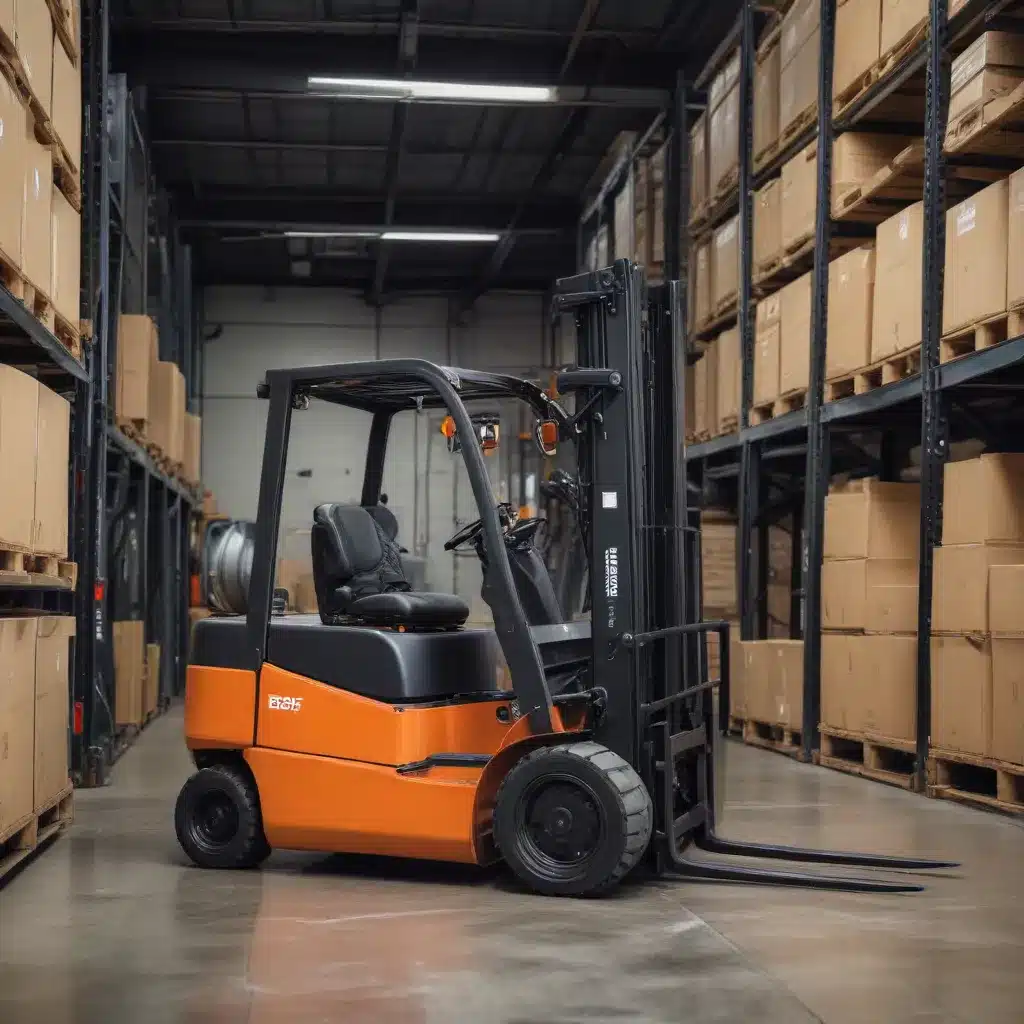
Harnessing AI for Forklift Fleet Management
In the dynamic world of warehousing and logistics, the role of material handling equipment (MHE), such as forklifts, has become increasingly crucial. As businesses strive to streamline operations, enhance efficiency, and maintain a competitive edge, the optimization of forklift fleet management has emerged as a strategic imperative. Fortunately, the advancements in artificial intelligence (AI) have revolutionized the way forklift fleets are managed, empowering companies to make informed decisions and drive continuous improvements.
Predictive Maintenance: Preventing Costly Breakdowns
One of the key areas where AI is transforming forklift fleet management is predictive maintenance. By leveraging real-time sensor data, machine learning algorithms, and predictive modeling, AI-powered systems can detect potential issues and forecast the optimal time for maintenance activities. This proactive approach allows organizations to address problems before they escalate into costly breakdowns, minimizing downtime and extending the lifespan of their forklift fleet.
Through the integration of sensors and IoT (Internet of Things) devices, forklift fleets can continuously transmit performance data to AI-driven maintenance platforms. These platforms analyze factors such as engine diagnostics, component wear-and-tear, and usage patterns to identify early signs of failure. By anticipating maintenance needs, companies can schedule proactive interventions, ensuring their forklifts are always running at peak efficiency.
Optimizing Fleet Utilization and Allocation
Effective forklift fleet management also involves optimizing the utilization and allocation of resources. AI-powered systems can analyze real-time data on forklift usage, travel patterns, and operational demands to identify opportunities for improvement. By leveraging predictive analytics, these systems can forecast future needs and proactively allocate forklifts to where they are needed most, ensuring that resources are deployed efficiently.
Furthermore, AI-driven automation can play a significant role in streamlining forklift operations. Autonomous guided vehicles (AGVs) and self-driving forklifts, powered by advanced sensors and AI algorithms, can navigate warehouses and perform tasks without human intervention. This automation not only enhances productivity and accuracy but also reduces the risk of operator errors and accidents.
Enhancing Safety and Compliance
The incorporation of AI in forklift fleet management extends beyond operational efficiency; it also significantly improves safety and regulatory compliance. AI-driven systems can monitor operator behavior, detect unsafe driving patterns, and provide real-time feedback to promote a culture of safety. By analyzing data from sensors and video cameras, these systems can identify training needs, enforce safety protocols, and mitigate the risk of accidents.
Moreover, AI can assist in ensuring compliance with industry regulations and safety standards. By automating the tracking and reporting of maintenance schedules, operator certifications, and equipment inspections, AI-powered systems help organizations maintain a robust compliance framework and reduce the administrative burden on fleet managers.
Leveraging Data-Driven Insights
At the heart of AI’s transformative impact on forklift fleet management lies the power of data-driven insights. By aggregating and analyzing vast amounts of data from various sources, AI-enabled platforms can provide fleet managers with actionable intelligence to drive decision-making.
These platforms offer centralized dashboards that consolidate key performance indicators (KPIs), such as equipment utilization, maintenance costs, and operational efficiency. Fleet managers can use these insights to identify areas for optimization, allocate resources more effectively, and make informed strategic decisions that enhance the overall performance of the forklift fleet.
Embracing the Future of Forklift Fleet Management
As the warehousing and logistics industry continues to evolve, the integration of AI in forklift fleet management is poised to become a crucial differentiator for businesses seeking to stay ahead of the curve. By harnessing the power of predictive maintenance, fleet optimization, and data-driven decision-making, companies can unlock new levels of efficiency, safety, and cost savings.
https://www.forkliftreviews.com/ is a leading resource for forklift enthusiasts, industry professionals, and decision-makers seeking to optimize their material handling operations. By providing in-depth reviews, safety guidelines, and industry insights, the platform empowers its readers to make informed choices and stay ahead of the curve in the ever-evolving world of forklifts and warehouse management.
As the industry continues to embrace the transformative potential of AI, Forklift Reviews remains committed to exploring the latest trends and innovations, equipping its readers with the knowledge and strategies needed to thrive in the age of intelligent forklift fleet management.
Navigating the Challenges of AI Integration
While the benefits of AI in forklift fleet management are substantial, the integration and implementation of these technologies are not without their challenges. Organizations must navigate issues such as data quality, system integration, and employee adoption to ensure a successful AI deployment.
Ensuring accurate and reliable data is a crucial prerequisite for effective AI-powered decision-making. Fleet managers must establish robust data collection and governance protocols to maintain the integrity of the information feeding into their AI systems. Integrating AI-driven solutions with existing enterprise systems, such as ERP and WMS, can also pose complexities that require careful planning and execution.
Furthermore, the successful implementation of AI in forklift fleet management hinges on the active engagement and buy-in of the workforce. Providing comprehensive training, fostering a culture of innovation, and addressing any concerns or resistance to change are essential steps in enabling a smooth transition to AI-powered forklift operations.
Partnering for Forklift Fleet Optimization
As businesses navigate the complexities of AI integration and seek to optimize their forklift fleet management, collaborating with experienced industry partners can be a game-changer. Specialized providers, such as Forklift Reviews, offer comprehensive solutions that encompass the latest AI-driven technologies, industry expertise, and a deep understanding of the unique challenges faced by warehouse and logistics operations.
By partnering with Forklift Reviews, organizations can leverage a holistic approach to forklift fleet management, seamlessly integrating AI-powered predictive maintenance, fleet optimization, and data-driven decision-making. These tailored solutions not only enhance operational efficiency but also ensure compliance with industry standards and prioritize the safety of forklift operators and warehouse personnel.
In the dynamic and competitive landscape of warehousing and logistics, embracing the power of AI in forklift fleet management can unlock a significant competitive edge. By harnessing the insights, automation, and optimization capabilities of AI, businesses can drive sustainable growth, improve customer satisfaction, and solidify their position as industry leaders.

